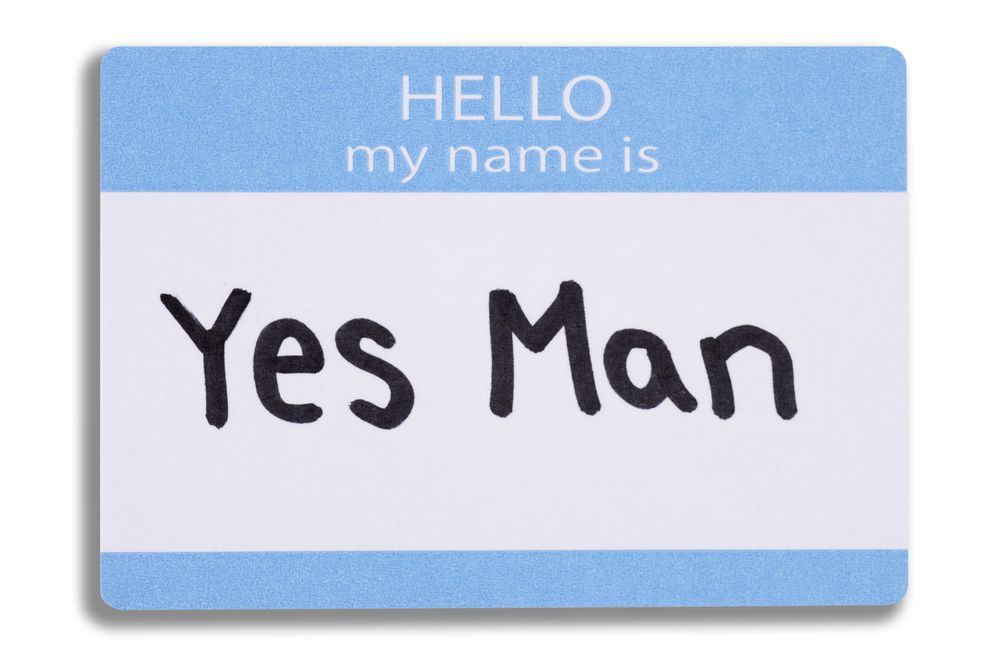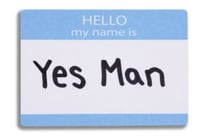Why It’s Smart to Say No to the Yes People

A healthy, successful organization attracts and retains individuals who are committed to their own ideas and perspectives.
Yes is such an interesting word. It has such positive connotations. In fact, merely speaking the word “Yes…” creates a flowing continuum of positivity. And yet, the concept of being overtly agreeable can also signal a danger, a red flag, a sort of step back to fully digest what is being agreed to and why.
When you run a business you want smart people who are agreeable and easy to work with. But don’t you also want smart people with a range of opinions and ideas of their own to keep the creative coffers bubbling up and overflowing?
 The answer should be yes, of course, but what makes it easy to shy from such an open invitation and instead cling to people who don’t rock the boat? Insecurity, control, arrogance, lack of awareness, or maybe sheer hubris? Whatever the reason, it can be a bad habit not easily undone.
The answer should be yes, of course, but what makes it easy to shy from such an open invitation and instead cling to people who don’t rock the boat? Insecurity, control, arrogance, lack of awareness, or maybe sheer hubris? Whatever the reason, it can be a bad habit not easily undone.
Whatever name you put on it, the fact is you’re setting yourself up for a fall somewhere down the road. It may not happen immediately, but it will happen eventually. That’s because a single perspective rarely (if ever) constitutes all the answers.
Think about it like this. If you surround yourself with yes people who are always going to agree with you, you might as well just listen to yourself. Do you really even need these people?
The Merriam-Webster dictionary describes a yes person as “one who endorses or supports without criticism every opinion or proposal of an associate or superior.”
If you manage a team of people within your organization are you encouraging the ‘yes man’ or ‘yes woman’ concept? If your people don’t have the freedom to speak up, speak out, and disagree, they may feel uncomfortable to say what they truly think.
Sadly, yes people can weaken a business. They are often the ones who are blamed for letting a situation occur that might have been prevented if they had felt like their ideas mattered.
A friend told the story of finally getting a good job that paid what she was worth only to realize after a couple of months into the job that her manager did not like it when she spoke up with new ideas. It wasn’t long after that the manager concocted an unscrupulous way to fire the lady. At the exit interview, my friend had the opportunity to say to her unfair boss, “What you need in this job is someone exactly like yourself, a clone.” Needless to say the look of shock on the boss’s face was sweet vindication for my friend.
This story is a prime example of poor management seeking only people who think like they do. While we all love to work with friendly, positive people, there is much to be said for an open environment of ‘agreeing to disagree’.
Your team will thrive and grow to appreciate one another more if you give them the power to speak their convictions. For them to be productive, team members need the power to disagree appropriately with you and with each other. In almost any setting, productive conflict is good for the group. And healthy dissent will keep things much more stimulating than a roundtable of everyone nodding their heads.
Get comfortable with saying no to the yes people and discover the positive changes that come about within your organization.
